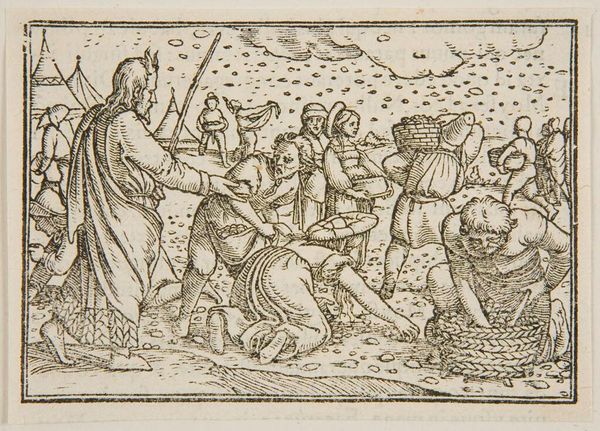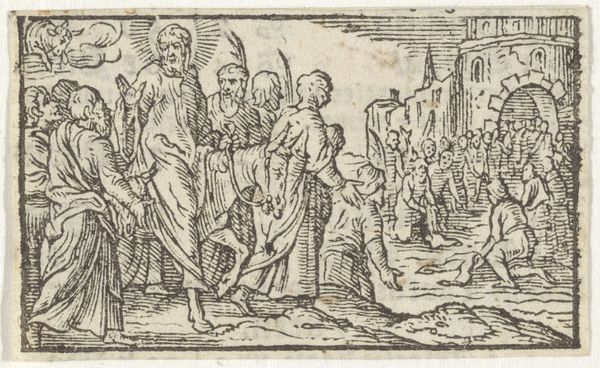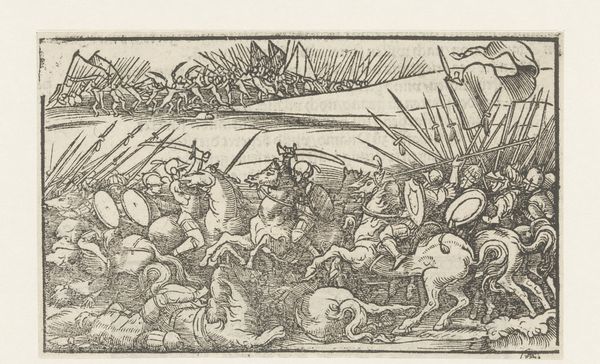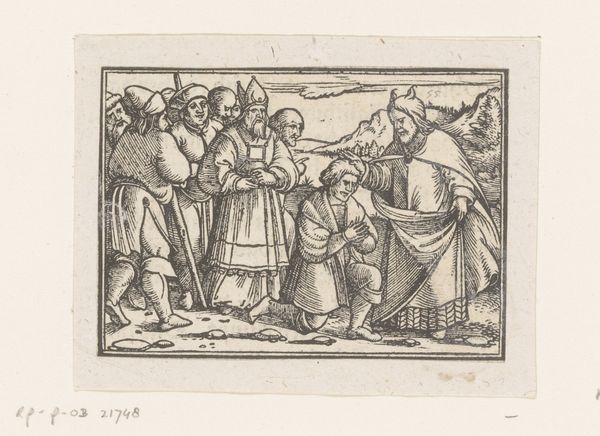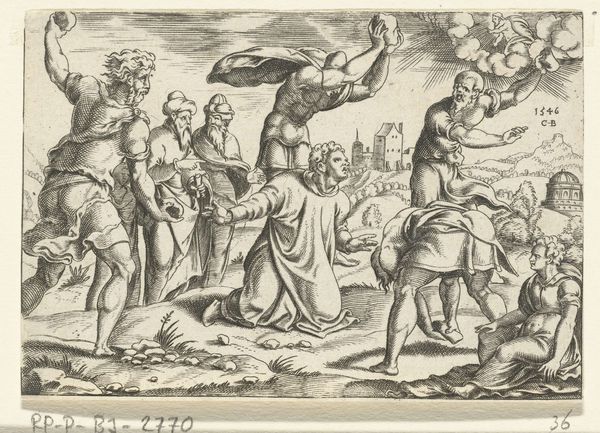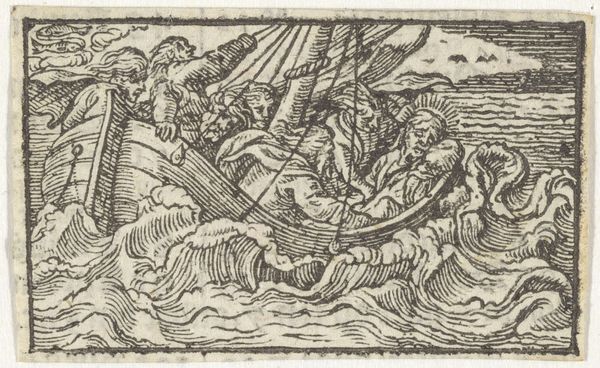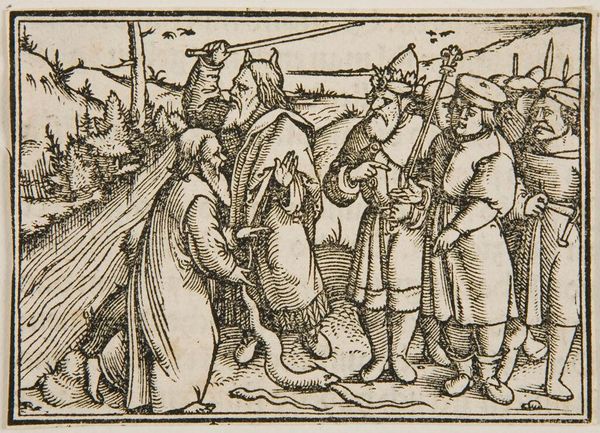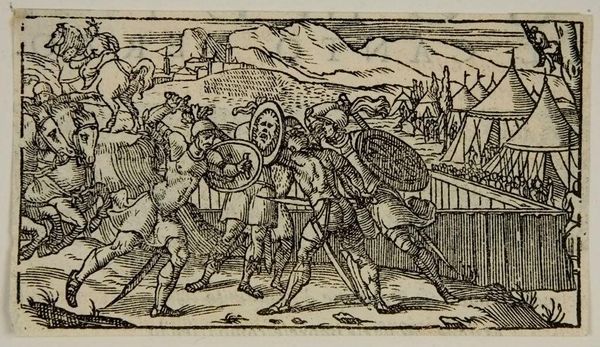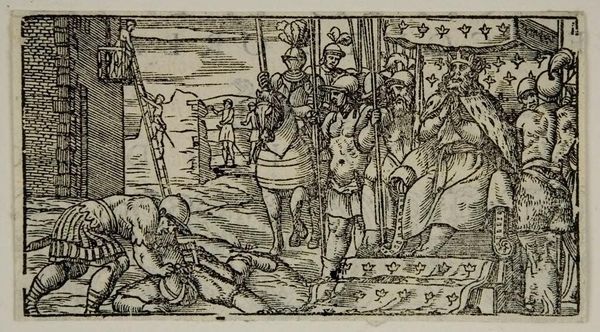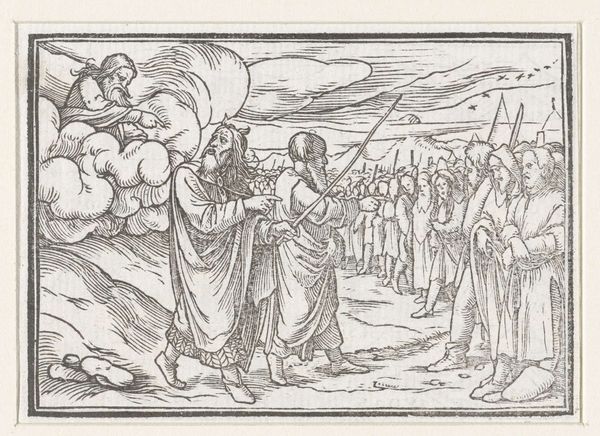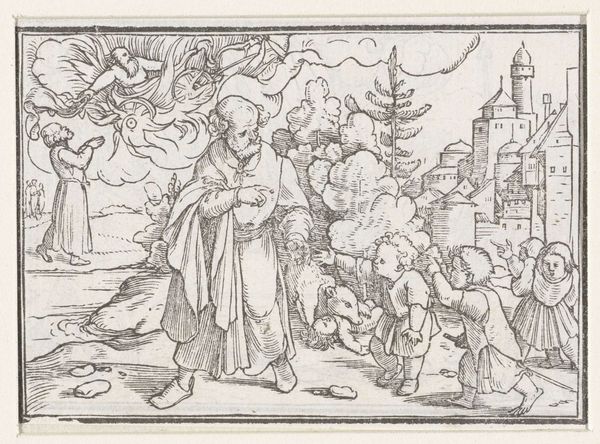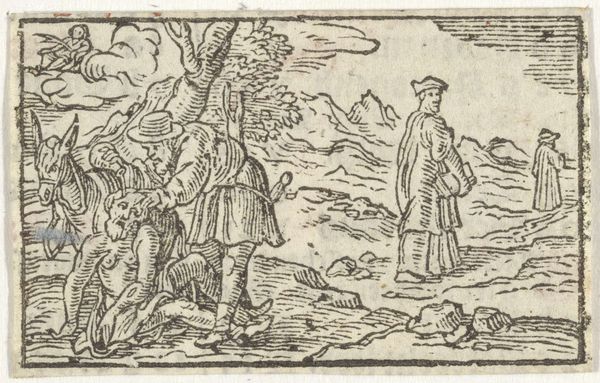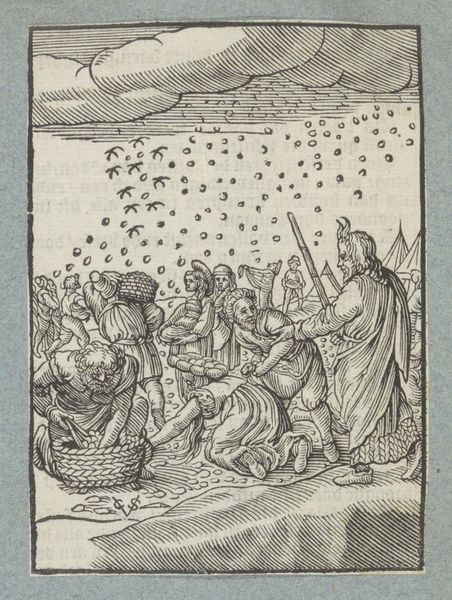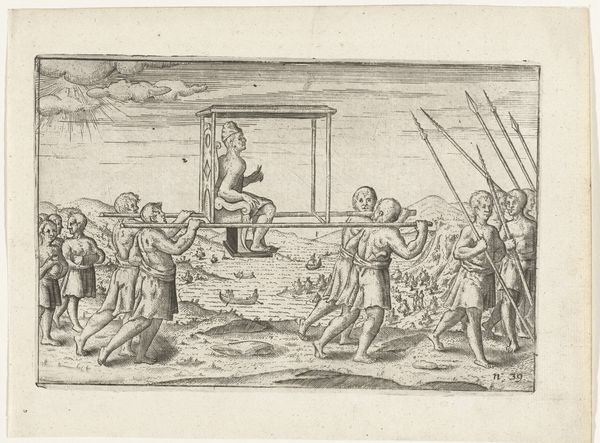
drawing, print, paper, ink, woodcut
#
drawing
#
narrative-art
#
pen drawing
# print
#
pen illustration
#
pen sketch
#
landscape
#
figuration
#
paper
#
ink line art
#
ink
#
pen-ink sketch
#
woodcut
#
line
#
northern-renaissance
Dimensions: height 60 mm, width 85 mm, height 84 mm, width 99 mm
Copyright: Rijks Museum: Open Domain
Hans Holbein the Younger made this tiny image, *Verzamelen van het manna*, likely as a woodcut, sometime in the first half of the 16th century. The technique would have involved carving away the negative space of the design from a block of wood, leaving the lines in relief. Ink would then be applied to this surface, and the image transferred to paper through pressure. The resulting stark, linear quality we see here is so characteristic of woodcuts. Looking closely, we see figures in a landscape, busy at work collecting manna. Holbein’s choice of woodcut as a medium carries with it an entire social history. Woodcuts were the people’s art: they are a relatively inexpensive way to reproduce images. They are intimately bound up with the rise of print culture. They made art accessible and widely distributed at a time of profound religious and social change. This image reminds us that even a small print can open up to a much larger world.
Comments
No comments
Be the first to comment and join the conversation on the ultimate creative platform.
